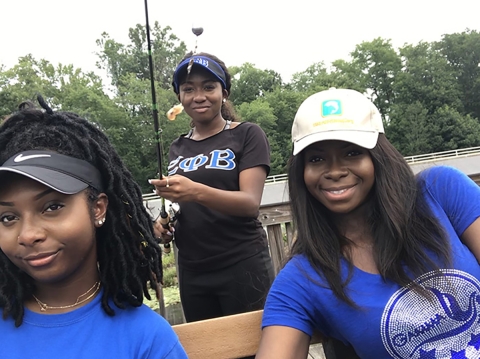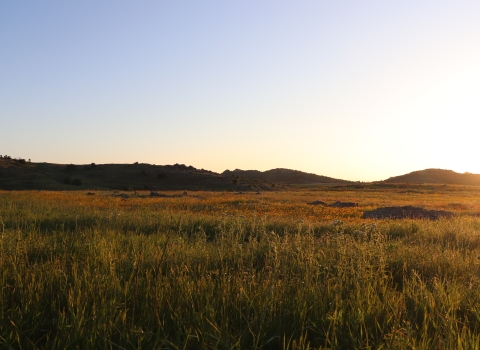I grew up in Indianapolis, Indiana, and cherished the summers I spent in rural Mississippi where you could always find me outdoors. Even now, some of my happiest moments are moments I’m outside – hunting, fishing, watching wildlife, running. One of my top priorities as Director of the U.S. Fish and Wildlife Service is to ensure that people know that public lands belong to the American people and to encourage everyone to access nature, even if they live in urban areas.
The Service manages a network of public lands and facilities including 568 National Wildlife Refuges, 70 National Fish Hatcheries, 38 wetland management districts, many of which are accessible to the public. These are public lands and waters we manage for the benefit of the American people. These are outdoor places where you can hunt, fish, hike, bike, camp, photograph wildlife and more. More than 100 National Wildlife Refuges are within an hour's drive of major metropolitan areas.
Today, more than 80 percent of the U.S. population lives in urban areas, and for the Service to continue its mission of stewardship of our nation’s wildlife and habitat, we must increase our efforts work collaboratively in urban areas. That’s why I am so pleased that we are renewing our partnership with Zeta Phi Beta Sorority, Incorporated. With the Sorority, we work to engage all youth in outdoor recreation, environmental education and careers in conservation.
To meet this challenge, in 2017 the Service began its support for Zeta Days at the Refuge, one of the Sorority’s initiatives. The initiative encourages its members to visit National Wildlife Refuges and learn more about natural resource conservation. During Zeta Days at the Refuge, Sorority members and friends visit, often for the very first time, refuges across the country.
Between 2017 and 2019, about 800 adults and children made 70 visits to refuges across the United States. In 2020 the initiative temporarily transitioned to virtual program, providing Sorority members with information and resources with a different conservation theme each month.
In 2018, the Service welcomed recent graduate and Zeta Phi Beta member Sierra Snyder as an intern. In addition to helping coordinate refuge visits, Sierra penned the “Doves in the Wild” blog series that concluded with her fishing trip to Patuxent Research Refuge in Maryland. As Sierra said of her trip, “It felt like a break from the busy and stressful life of a college graduate; it was a breath of fresh air – literally.”
Nature, of course, is more than a way to relax. It is also important to our health and the health of all wildlife. When visiting refuges, Sorority members are engaged in outdoor recreation, such as hiking, archery, and kayaking. And after learning a little bit about wildlife and their habitat, they engage in hands-on wildlife conservation activities, such as planting milkweed.
Connecting with nature when you live in a city can be difficult, but through programs like Zeta Days at the Refuge, we hope to make it a bit easier while encouraging diverse youth to consider careers in conservation.
Aurelia Skipwith was Director of the U.S. Fish and Wildlife Service, 2019-2021
This story is from our Open Spaces blog.





